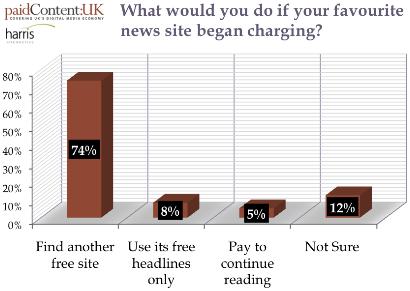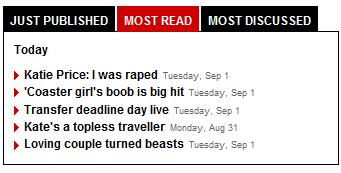 News that Rupert Murdoch’s News International is to close the capital’s freesheet thelondonpaper prompted an outpouring on the blogosphere and the Twittersphere – analysis, opinion and some insight from those who worked on the paper.
News that Rupert Murdoch’s News International is to close the capital’s freesheet thelondonpaper prompted an outpouring on the blogosphere and the Twittersphere – analysis, opinion and some insight from those who worked on the paper.
David Brown was part of the launch team and he remembers “the genuine pride” on the day it went live in September 2006. That despite the obvious lack of resources.
Writing on The Media Blog (for which I’m also a contributor), Brown notes:
Although News International poured millions into the product, the feeling that things were being done on a shoestring was never far away. Many of the staff were put on shorter, one-month notice periods and given different pension rights and lesser benefits than others in the News International stable.
Another member of the 2006 launch team James Seddon says the writing was on the wall from the very start – and Rupert Murdoch’s recent conversion for paid-for online content merely confirmed thelondonpaper’s demise.
Seddon notes:
Apparently when the dummy copy was presented to Murdoch by the paper’s editor, his response was that you could charge 10p for it – an anecdote that was repeated with an ‘oh Dad, what are you like, you silly old codger?’ tone. So if he didn’t get ‘free’ then, it’s no surprise he dropped the paper when times were tough.
It’s a theme taken up by Gordon Macmillan, editor of Brand Republic. While acknowledging “no one thing killed thelondonpaper”, he writes:
Given that News Corporation has stated that it intends to charge for all forms of online content, a free newspaper and its free website makes ever less sense. Maybe this is the reason that the website will close along with the print title.
I’m not sure that reading of the situation is right. Even if Murdoch does go down the paid for route, he’s not going to rid himself of the free competition simply by closing one of his own titles.
There’s a place for free online and a title covering a mix of general news, London listings, sport and celebrity seems to fit that model.
Despite the trend for paywalls, micropayments and the rest, the ad-supported model will continue to work in certain situation. And I’m sure Murdoch knows that. (see: What if the business model for news ain’t broke? for more on this)
David Brown for one defends the original business proposition:
In terms of economics, the concept of opening up a way for advertisers to target the pockets of the all-important 20-35 commuter demographic … made sense.
There was, however, at least one silver lining. As Journalism.co.uk’s Laura Oliver noted on Twitter:
@LauraOliver oh well, will no longer need to agonise over whether its the london paper/thelondonpaper/The London Paper etc
Related:
– thelondonpaper Folds. Capital-Centric Media Bias Alive And Well On Twitter.
– Fox News Anchor To Rupert Murdoch: ‘Mr Chairman Sir, Why Are You So Great?’
– What if the business model for news ain’t broke?




 News that Rupert Murdoch’s News International is to
News that Rupert Murdoch’s News International is to